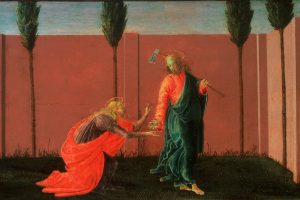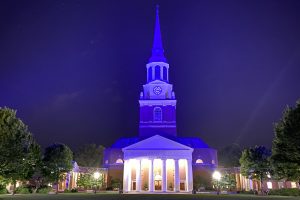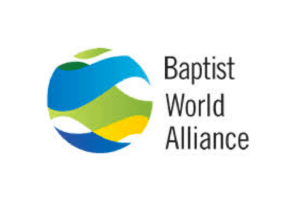 I hear the question all the time. I meet someone for the first time at a party, they eventually ask what I do for work, and then the follow-up is some version of, “How are you Baptist?” Another popular question is, “What kind of Baptist are you?” And now I even hear those same questions popping up in my congregation. Why Baptist? Is it an obstacle as we serve in our community? Do people make assumptions about who we are because of our name? Does it prevent people from walking into our sanctuary and experiencing God with us?
I hear the question all the time. I meet someone for the first time at a party, they eventually ask what I do for work, and then the follow-up is some version of, “How are you Baptist?” Another popular question is, “What kind of Baptist are you?” And now I even hear those same questions popping up in my congregation. Why Baptist? Is it an obstacle as we serve in our community? Do people make assumptions about who we are because of our name? Does it prevent people from walking into our sanctuary and experiencing God with us?
My entire life has been lived in the shadow of what kind of Baptists we were and the subsequent, slow effort of explaining what kind of Baptists we are. We talk about freedom and autonomy. We explain to new folks that it’s about polity more than dogma. We spotlight our partners in the Alliance of Baptists or American Baptist Churches USA or Cooperative Baptist Fellowship. We point to Jimmy Carter and Brent Walker and Will Campbell and Amy Butler as the faces of “our kind of Baptists.” On my church’s website we describe ourselves as an ecumenical congregation in the Baptist tradition, and we borrowed that from a sister congregation who is surely having the same conversations we are having.
When not-my-kind-of-Baptist pastors make public statements about victims of the Orlando shooting deserving their violent end, or sign on to coach the presumptive GOP presidential candidate in his newfound evangelicalism, or famously protest funerals, I hear the question. “Why are we still Baptist?” Sometimes it’s asked jokingly, but being a punchline gets old. The question is getting heavier, and I sense our thoughtful explanations of Baptist distinctives and historic principles are landing with a thud as we try to explain our descriptor to people who only know the not-my-kind-of-Baptists.
While we Baptist News Global-reading kind of Baptists may understand one another, I wonder now if that is enough in the wide world around us. Is our name going the way of the Baptist Bookstore? Or is it a proud history to boast? Are your congregations asking the same questions? Have you carefully worded the “About Us” section of your website to claim who you are and who you are not? Identifying as Baptist is the lens through which I have known the church and is the language of home for me. And yet, it’s worth asking each other: Why are we still Baptists after all these years?






































































